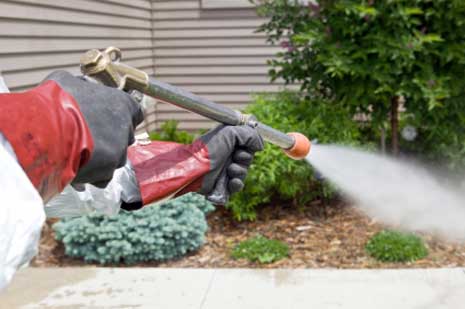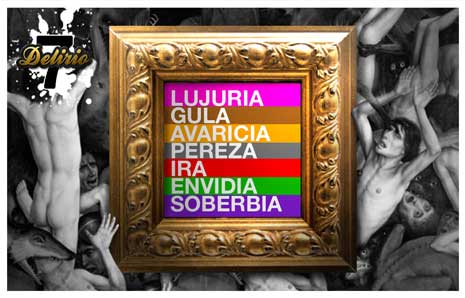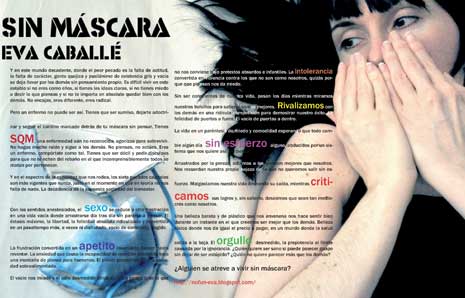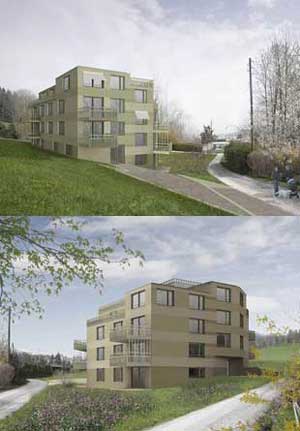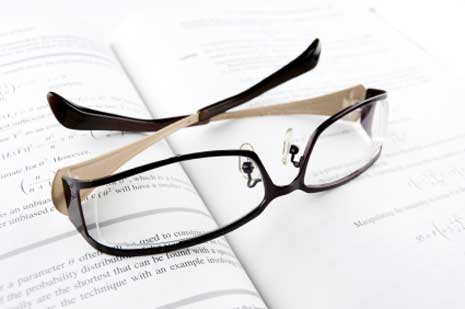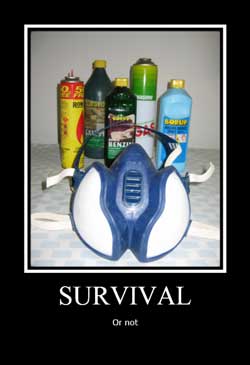
Series: “The Danish MCS Research Centre in the International Field of Vision”
Part III:
Until 2008 it was a common practice in Denmark for local authorities to grant severe MCS sufferers free aid under the service law, section 122, by giving them half mask respirators with activated charcoal filters.
In 2008 a severe female MCS sufferer had her application rejected by the local authorities for this respirator. This case ended at the Danish appeals board, which upheld the rejection on the following grounds:
“…there is no medical documentation for the chronic manifestations of the disease (MCS), its causality, lack of diagnostic criteria and treatment, as well as there is no medical documentation that the mask can sufficiently remedy functionality in her daily life.”
After this incident, a number of MCS patients had their grants for the respirators with filters also suspended by their local authorities, referring to the above ruling.
At the same time, there is no hospital ward in Denmark at all that is committed to examine, diagnose, treat and/or guide this group of severe MCS suffers. All instances refer to the Research Center for Chemical Sensitivities in Copenhagen, which was established in 2006 with minimal grants, but which does not occupy itself with MCS patients, except for using them as test subjects in PhD studies or projects.
The Research Center denies research effects of mask respirators on the MCS population
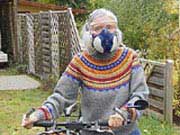 After the ruling by the appeals board, a great number of MCS sufferers contacted the Research Center to make them document the effects of the respirators with filters for the MCS population, since these are for the time being, the only efficient treatment option for those with MCS, besides the so-called avoidance strategy which leads to social isolation and thus to the possible risk of a subsequent psychological impairment due to isolation from the outside world in the MCS patient’s life. However, this isolation can be reduced by wearing a mask respirator.
After the ruling by the appeals board, a great number of MCS sufferers contacted the Research Center to make them document the effects of the respirators with filters for the MCS population, since these are for the time being, the only efficient treatment option for those with MCS, besides the so-called avoidance strategy which leads to social isolation and thus to the possible risk of a subsequent psychological impairment due to isolation from the outside world in the MCS patient’s life. However, this isolation can be reduced by wearing a mask respirator.
To the MCS sufferers’ great astonishment and despair, the Research Center, however, published on its homepage that they were not going to research the effects of half mask respirators with activated charcoal filters on the MCS population. Their arguments, were among others, was that an investigation into the effects of mask respirators on MCS sufferers would require a clinically controlled study, and such a study must be both placebo-controlled and double-blind in order for the results to become reliable and useful.
Thus, the Research Center does not prioritize spending research funds on a study of mask respirators, but focuses instead on researching possible disease mechanisms and other therapy strategies. (1)
In this way, Danish MCS sufferers can see no prospect of anyone obtaining the documentation required by the Danish social system. Thus there is no prospect of being granted mask respirators, the aid which is extremely vital for sufferers – a crazy paradox not worthy of a modern welfare society.
Instead, the Research Center regards electroconvulsive therapy of MCS sufferers as interesting
Simultaneously with the above, the Research Center was following a male MCS sufferer who accepted being subjected to electroconvulsive therapy over six months (at first eight electroshock treatments over three weeks, and after that every two weeks), and on the basis of this one MCS patient’s subjective evaluation of the effect of this electroconvulsive therapy – a ”study” that, of course, was neither placebo-controlled nor double-blind – the Research Center published a scientific article: ”Electro- convulsive Therapy Substantially Reduces Symptom Severity and Social Disability Associated With Multiple Chemical Sensitivity: A Case Report. “Elberling et al. (2) with this conclusion: “In this case, a substantial, positive effect on symptom severity and social disability related to MCS was obtained by an initial somatizing patients course and maintenance treatment. Electroconvulsive therapy should be considered an option in severe and socially disabling MCS, but more studies are needed to evaluate if ECT can be recommended as a treatment for MCS.”
The limited research funds are gladly spent on Mindfulness therapy
Also, the Research Center is planning to spend its very limited funds to research the effects of Mindfulness based cognitive therapy on MCS.
In 2008 the Research Center performed a pilot project study in cooperation with the Center of Psychiatry, The Copenhagen University Hospital, where the title of this pilot project on the homepage of the Copenhagen University Hospital was ”Mindfulness based cognitive therapy of somatizing patients, primarily MCS patients.”
However, this title was in haste changed to: “The Effects of Mindfulness Based Cognitive Therapy with Persons with Hypersensitivity to Fragrances and Chemical Substances,” since MCS sufferers found out that the Research Center, in cooperation with the Center of Psychiatry, considered them mentally ill. Jesper Elberling, the then scientific leader of the Research Center, had meanwhile passed it all off as a “mistake.”
Right now, in continuation of this above-mentioned pilot project, a PhD study is being planned, to investigate the effect of Mindfulness on the MCS population. This is obviously one of those therapy strategies in which the Research Center gladly prioritizes its limited research funding, notwithstanding that Danish MCS sufferers again and again have told the Research Center that mask respirators are an efficient therapy strategy, whereas no one has ever heard or hears about MCS sufferers who have experienced any effects on their MCS from Mindfulness therapy.
Will the Research Center follow its own persistence and demand the placebo-controlled and double-blind studies in its coming research?
In the near future, the Research Center will start up its new study on the effects of Mindfulness therapy on MCS, and we shall then see if the Research Center will actually live up to its own demands and arguments that therapy effects require [DP1] a clinically controlled study, which is both placebo controlled and double-blind, in order for the results to become reliable and useful.
These demands apply hopefully not only for therapy forms, (the effects of which the Research Center does not want to document), such as half mask respirators with activated charcoal filters that are indeed vital to most severe MCS patients, and at the moment are the only treatment strategy that gives MCS sufferers the temporary possibility of being able to move about in the public domain, and which severe MCS sufferers experience as a highly efficient therapy strategy. However this highly efficient therapy strategy lacks – according to the Research Center – ”scientific documentation” which apparently nobody in Denmark wants to obtain.
Author: Bodil Nielsen, Denmark
Translation: Dorte Pugliese for CSN – Chemical Sensitivity Network
Series: “The Danish MCS Research Centre in the International Field of Vision”
Part I: MCS – Multiple Chemical Sensitivity: A Report from Denmark
Part II:Changes of the international science of chemical sensitivity at the Danish Research Centre for Chemical Sensitivities?
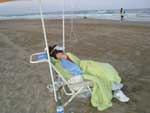 This seriously ill woman collapsed from the nerve agents, which were sprayed and resulted in putting her into a critical condition. For days she was in the worst health state possible and had to sit in a lawn chair by the sea. The parents tried to stop the city leaders from this application of pesticides, neurotoxic organophos- phates, but it was in vain.
This seriously ill woman collapsed from the nerve agents, which were sprayed and resulted in putting her into a critical condition. For days she was in the worst health state possible and had to sit in a lawn chair by the sea. The parents tried to stop the city leaders from this application of pesticides, neurotoxic organophos- phates, but it was in vain.
